Engineer-Turned Farmer Runs a Certified Organic Mall in Pune With 11 Others!
The mall sells 1,200 products and already has 1,400 customers!
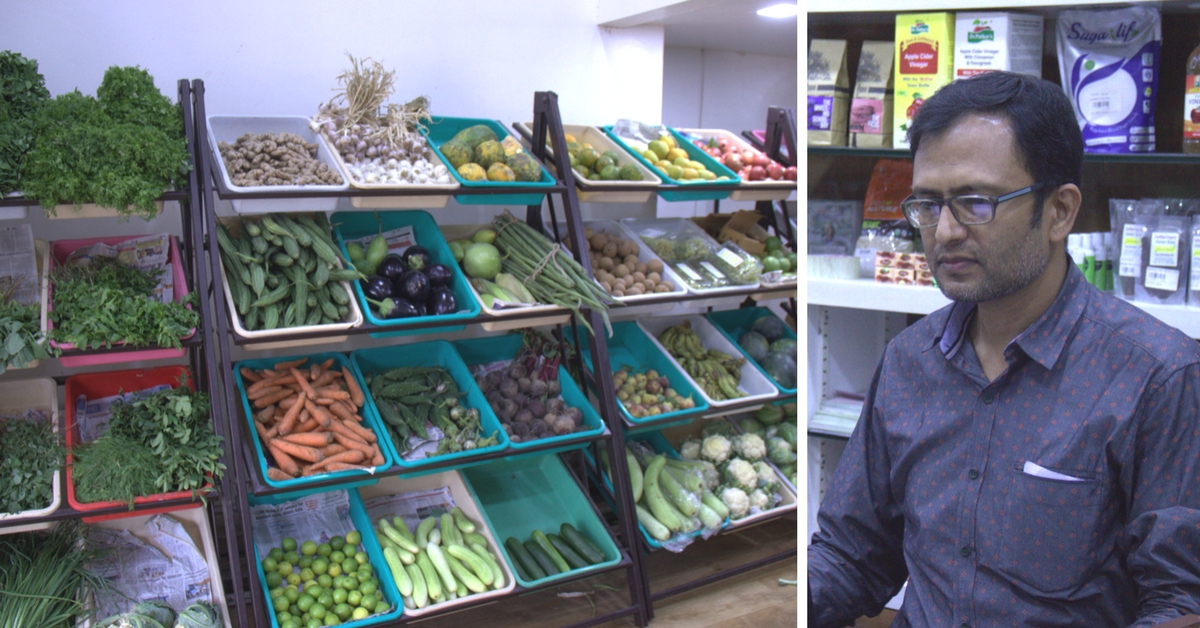
Dheeraj Pipada, 44, a farmer and engineering graduate from Aurangabad, is on the hunt for a sustainable economic model for organic produce, along with 11 other farmers.
Dheeraj and his group of farmers are currently running the store Rich n Fresh in Pune, which is the closest they have come to a sustainable model.
Dheeraj considers it to be the first organic produce mall in Maharashtra. It has been running for over four years and has a solid base of 1,200 products and over 1,400 customers.
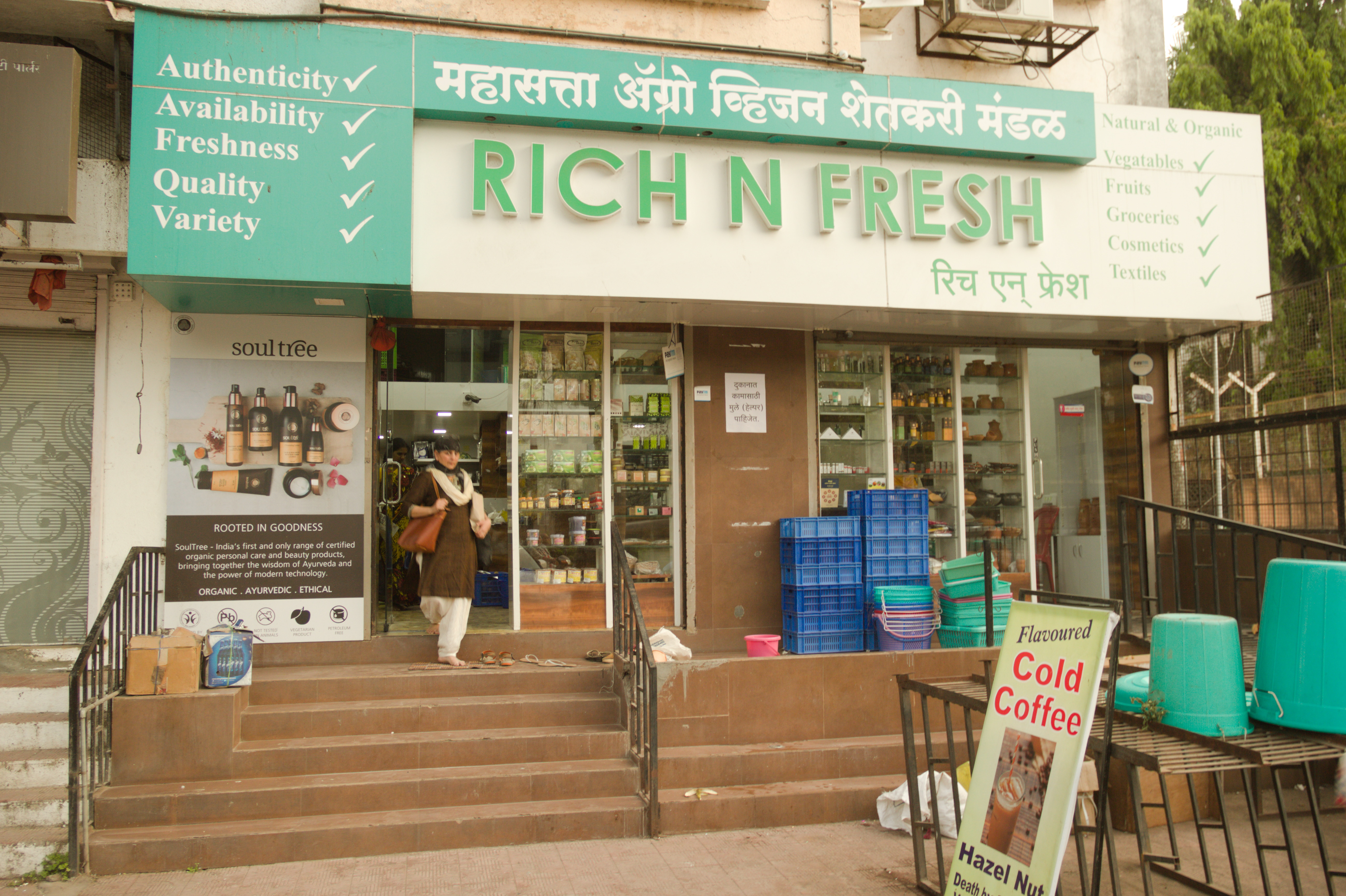
“We created a mall with this pleasant ambience so that organic produce can get higher status,” says Dheeraj proudly.
Dheeraj started cultivating organic produce about 7.5 years ago. He was in an engineering business before this, and his land was lying fallow. “For a farm to start giving healthy organic produce, it takes at least three years from when the farmer stops using chemical fertilisers and pesticides. So I was spared the pain of land damage by chemicals!” he says.
Also Read: Meet the Lady Who Has Revived 25 Forgotten Varieties of Rice; Try Some Today!
But the sale of produce in the vegetable markets wasn’t yielding much profit for the group. So they decided to develop an alternate model. The 12 farmers from Nashik, Nagar, Pune, and Aurangabad districts in Maharashtra, formed the Mahasatta Agro Vision Shetkari Mandal in 2011.
Their organic produce was certified in 2013. Dheeraj was to head the marketing division of their organic agriculture venture, while the rest of the farmers would ensure his farm did well too.
Dheeraj knows most of the store’s customers by their first names.
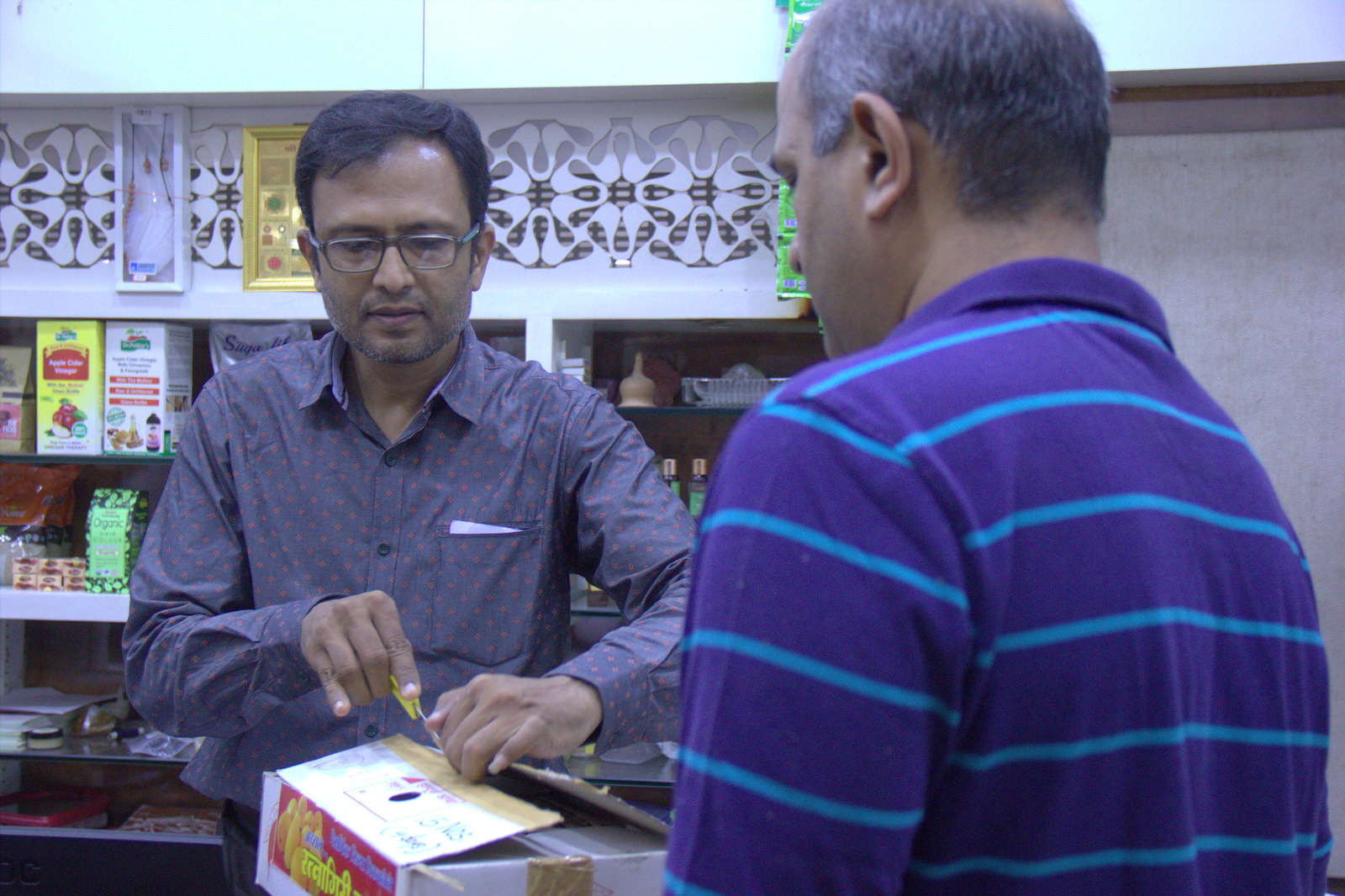
He recounts the story of one such customer, Radhika Joshi, whose husband was terminally ill. His condition improved by leaps and bounds when they started using organic produce. “Ms Joshi believes in us so much now that she contributed funds for this mall when we moved from the smaller premises next door,” beams Dheeraj, as he points at the organised store.
The store has both primary organic produce–vegetables, fruits, grains, and processed organic products–spices, snacks, cosmetics, and some apparel.
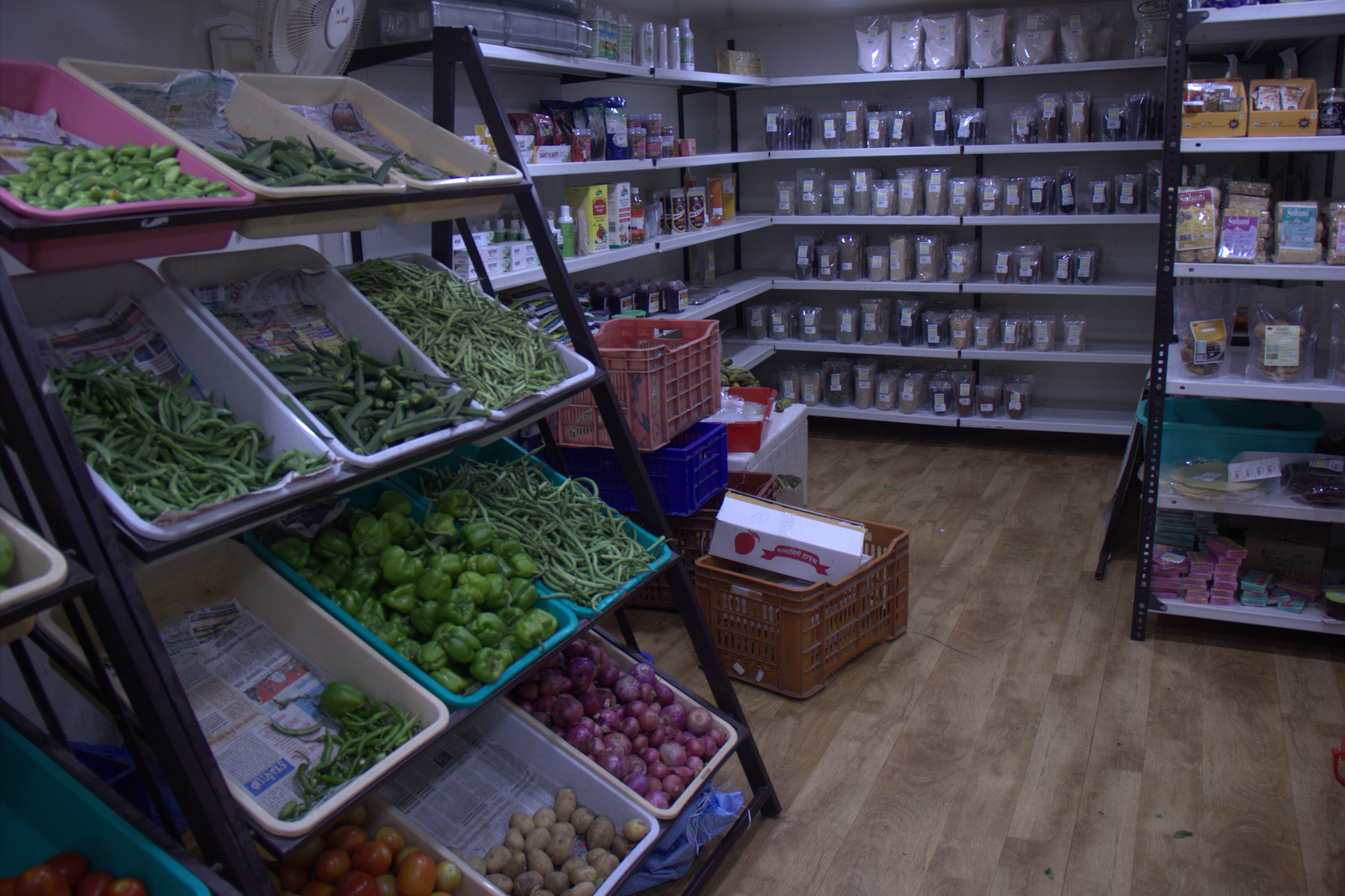
However, Dheeraj believes that the absence of chemicals alone does not make the produce organic. “That is a very limiting definition. Very importantly, organic farming does not exploit the land, the animals, the environment, or the farmers,” he says.
While discussing his clean produce, he admits that there are cases of fraud sellers in the ecosystem, which makes customers suspicious.
One way around the issue of authenticity is certification. Dheeraj and his group have taken the Participatory Guarantee System Certification. “If even one of the farmers in the group is found to have contaminated produce, the entire group loses certification,” warns Dheeraj. This certificate has to be renewed every three years, although the officials visit every year. He believes that certification acts as a primary filter. “Customers should ask if the seller has a certificate,” he insists.
The other hurdle for organic produce is pricing, says Dheeraj. Customers expect organic produce to be cheap. The extra cost added by middlemen, shops, and packaging has to be borne by the customer. Dheeraj believes this will reduce if the customer buys directly from the farmer, which ensures that the farmer also gets a fair price. “If customers start buying more, the rates will go down,” he shares.
But anyway, Dheeraj argues, why should a farmer sell at a lower price? “There will always be a premium on organic produce, but the difference (between organic and inorganic) will reduce,” he believes.
Further, Dheeraj believes the bond between the end consumer and the farmer is more important than prices.
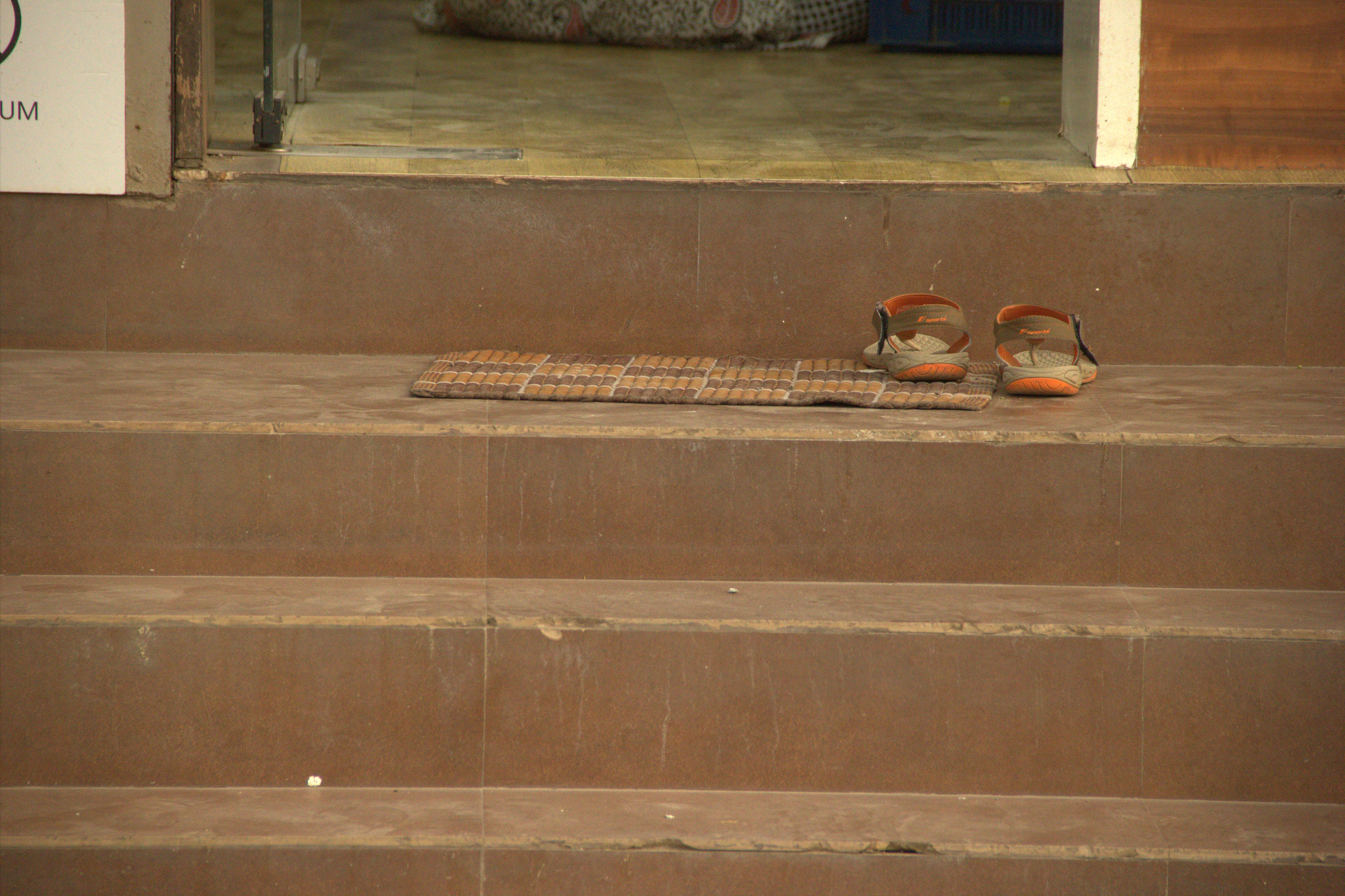
“If you form a bond with the farmer and see the condition he lives and works in, you will inevitably feel empathy. Right now there is no concern about whether the farmer is alive or dead. When the end-user bonds with the farmer, the farmer will also bond with them. When such a relationship is present, the farmer will give authentic produce. In fact, authenticity will be at its highest,” says Dheeraj, adding. “Like a family doctor, I think the concept of Family Farmer should come into play.”
Also Read: Coconut Husks, Sand, and More: All You Need to Create a Soil-less Garden!
During a meet-and-greet for customers and farmers in the mall, a customer profusely thanked one of the farmers Bapurao Korde for his chikoos. The customer said his son didn’t eat chikoos unless they came from Korde Guruji who was overjoyed to hear this. “In cases like these, money ceases to matter!” he says.
Dheeraj continues, “When it is a question of your health, why don’t you go to meet the farmer? You will understand his troubles when you walk in his shoes. You will get more than what you expect. You take one step forward; the reciprocation will be very high.”
Generating such awareness is a part of Dheeraj’s work–he considers it his duty to clear misconceptions and spread the right information among both customers and other farmers. He is now considering conducting seminars despite being wary of commercial ventures, as he doesn’t equate commercial growth with success.
For Dheeraj, success was when the gandhool (earthworm) in his farm survived in searing temperatures of 43 degrees Celsius.
(Written by Shatakshi Gawade and edited by Shruti Singhal)
Like this story? Or have something to share? Write to us: [email protected]
Connect with us on Facebook and Twitter. NEW: Click here to get positive news on WhatsApp!
If you found our stories insightful, informative, or even just enjoyable, we invite you to consider making a voluntary payment to support the work we do at The Better India. Your contribution helps us continue producing quality content that educates, inspires, and drives positive change.
Choose one of the payment options below for your contribution-
By paying for the stories you value, you directly contribute to sustaining our efforts focused on making a difference in the world. Together, let’s ensure that impactful stories continue to be told and shared, enriching lives and communities alike.
Thank you for your support. Here are some frequently asked questions you might find helpful to know why you are contributing?


This story made me
-
97
-
121
-
89
-
167











